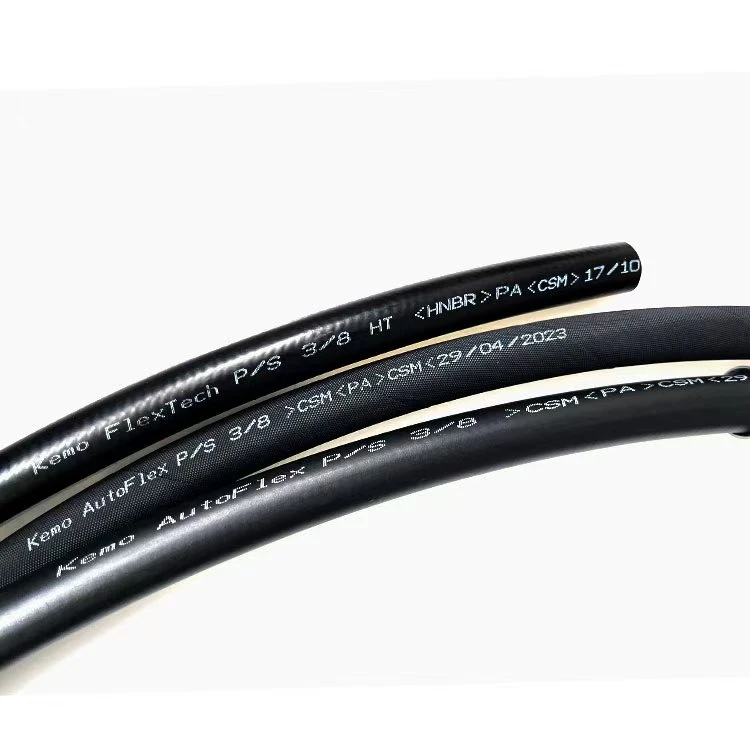Fuel Line Solutions for Enhanced Performance and Reliability in Your Vehicle
ធ្នូ . 11, 2024 10:58 Back to list
Fuel Line Solutions for Enhanced Performance and Reliability in Your Vehicle
Understanding Fuel Tubes Critical Components in Modern Engines
Fuel tubes play a pivotal role in the functionality and performance of modern internal combustion engines. These tubes are responsible for transporting fuel from the tank to the engine, ensuring that the right amount of fuel is delivered at the right pressure. This seemingly simple task is critical to the efficient operation of vehicles and machinery, making the design and maintenance of fuel tubes essential for optimal performance and safety.
The Function of Fuel Tubes
At the core of a vehicle’s fuel system, fuel tubes connect various components, including the fuel tank, fuel pumps, fuel injectors, and, occasionally, the carburetor. They are designed to withstand high pressure and are often constructed from materials that resist corrosion and wear. The primary function is the safe and effective transfer of liquid fuel, which can include gasoline, diesel, or other fuel types.
Modern engines require precision in fuel delivery to maximize efficiency and minimize emissions. Fuel tubes must be specifically engineered to accommodate the fuel type, pressure, and temperature conditions typical in automotive and industrial applications. For instance, in high-performance engines, fuel tubing must handle increased pressure levels to deliver fuel rapidly and ensure optimal combustion.
Materials Used in Fuel Tubes
The choice of material for fuel tubes is critical. Common materials include rubber, plastic, and metal, each with its advantages and disadvantages. Rubber tubes are flexible and easy to install but can degrade over time due to heat and fuel exposure. Plastic tubes offer resistance to corrosion and are lightweight but may be less durable in extreme conditions. Metal tubes, particularly those made from high-resistant alloys, are robust and durable, making them suitable for high-performance applications but often come with higher costs and complexities in installation.
fuel tube

An essential innovation in fuel tube technology has been the development of fuel tubes with integrated sensors for fuel pressure and temperature
. These tubes can provide real-time data to the engine control unit (ECU), allowing for more accurate fuel management and improved engine performance.Maintenance and Safety Considerations
While fuel tubes are engineered for reliability, maintenance is crucial for vehicle safety and performance. Over time, fuel tubes can become clogged or contaminated, leading to reduced fuel flow and pressure. Regular inspection for signs of wear, such as cracks, leaks, or discoloration, can prevent unexpected failures. Additionally, ensuring that connections are secure and free from corrosion is essential for safe operation.
Fuel leaks can pose severe risks, including fires and environmental damage. Thus, any signs of leaks should be addressed immediately. It's also essential to ensure that fuel tubes are replaced according to the manufacturer's recommendations, especially for older vehicles where material degradation may be more pronounced.
The Future of Fuel Tube Technology
As the automotive industry moves towards electrification and alternative fuel sources, the future of fuel tubes may evolve. The shift to electric vehicles (EVs) reduces the need for traditional fuel tubes, yet hydrogen fuel systems and biofuels are emerging, indicating that this component will continue to be relevant. Innovations in materials science may lead to the development of lighter, more efficient fuel tubes that can better withstand the various demands of modern engines, including higher pressures and different chemical compositions.
In conclusion, fuel tubes are an integral part of the fuel delivery system in internal combustion engines. Their role in ensuring the safe and efficient delivery of fuel cannot be understated. Whether through material advancements, better design, or improved maintenance practices, understanding and optimizing fuel tube technology remain essential as we advance into the future of transportation. Proper attention to these components will continue to ensure both the performance and safety of vehicles for years to come.
